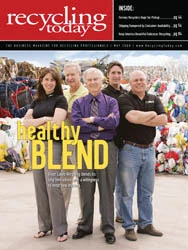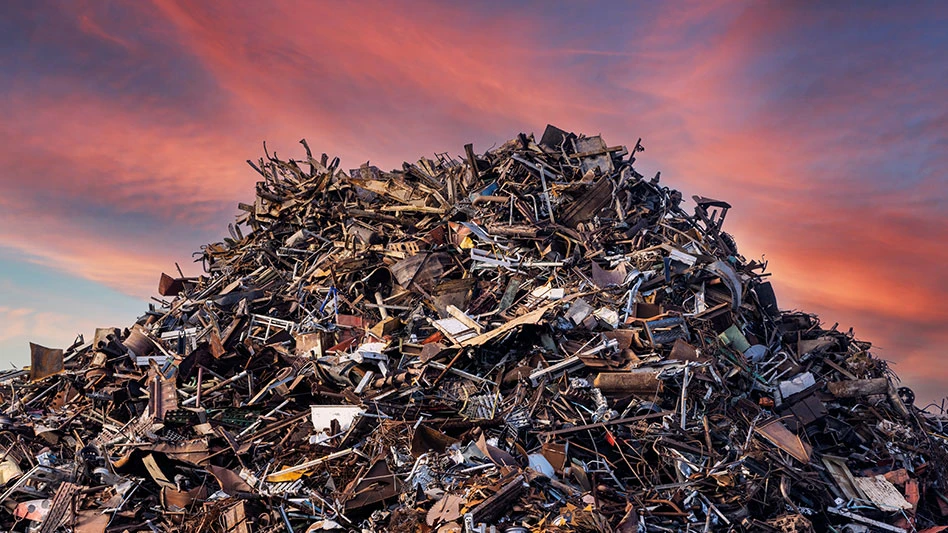Federal Rule on Salvaged Automobiles Goes into Effect
A new Federal Rule has gone into effect that requires all insurance carriers, auto recyclers, salvage yards and scrap yards to report total loss and salvage vehicle data to the National Motor Vehicle Title Information System (NMVTIS).
The rules also apply to any entities that handle, control, own or acquire salvage vehicles, such as salvage pools, salvage auctions, pull- or pick-a-part yards, shredders of end-of-life vehicles, scrap metal processors and crushers.
The rules require that salvage companies report every 30 days at minimum. However, the Department of Justice strongly recommends that insurance carriers report within 24 hours of a claim determination to help maintain the accuracy of NMVTIS.
NMVTIS contains title, odometer and brand information designed to be maintained even when a vehicle changes title from one state to another. The object is to prevent criminals from being able to re-title a damaged vehicle in another state with no record of the damage or to replace a clean-title junk vehicle with a stolen car of similar make and model. By making such fraudulent activities more difficult, the goal is for NMVTIS to keep unsafe vehicles off the road and prevent criminal activity.
Newell Recycling Expands Georgia Operations
Atlanta-based Newell Recycling LLC has opened a recycling facility in Statesboro, Ga. The new facility, to be called Newell Recycling of Statesboro LLC, is in the eastern part of the state.
The site, formerly Whitaker Motors, will accept ferrous and nonferrous scrap metals. The company expects the location to be a major supplier of shredder feed and other metals to Newell Recycling of Savannah LLC, its newly opened processing plant that features an auto shredder.
"We welcome the opportunity to become a part of the community of Statesboro, with our recent acquisition of Whitaker Motors," says Richard Riley, manager of strategic development for Newell Recycling LLC. "We believe this purchase gives us the ability to develop new business in key regions that support our shredders in Atlanta and Savannah while providing jobs to members of the community."
The location is near light manufacturing facilities as well as smaller salvage yards, which the company says it hopes to work with to help feed Newell Recycling’s larger yard in Savannah.
Newell Recycling was founded in 1935 by Alton Scott Newell. Including its Statesboro location, the company has 10 yards in Georgia.
EMR, Chinook Sciences Launch Venture to Convert ASR to Electricity
Chinook Sciences Ltd., a manufacturer and operator of gasification technology with offices in the U.K. and Cranford, N.J., and European Metal Recycling Ltd., with head offices in Warrington, U.K., have announced the formation of a commercial-scale joint venture designed to convert automobile shredder residue into electricity, recovering recyclable metal in the process.
The joint venture, named Innovative Environmental Solutions UK Ltd., will process 120,000 metric tons of automobile shredder residue (ASR) per year using Chinook’s patented and proprietary RODECS gasification system.
RODECS gasifies the ASR, producing minimal emissions and recovering and recyling materials with value (primarily metal) contained in the ASR, according to the companies. Electricity also is produced during the process.
The joint venture is being billed by the two companies as the first commercial scale operation to productively process ASR, capturing the energy contained within, recovering the metals and glass and reducing greenhouse gas emissions.
"This alliance with Chinook Sciences is very exciting and a further significant step toward our goal of achieving 95 percent recycling and recovery from our shredding operation and thereby further improving the impact on the environment," says David Ireland, director of technical services at EMR.
Rifat Chalabi, chairman of Chinook Sciences, says, "Partnering with EMR is part of the Chinook Sciences Beyond Landfill Global Initiative, which is designed to form joint ventures with environmentally conscious companies looking for advanced technology to recover valuables and convert waste into renewable energy. A unique and very attractive feature of our technology is the creation of a very large negative carbon footprint."
Get curated news on YOUR industry.
Enter your email to receive our newsletters.
Explore the May 2009 Issue
Check out more from this issue and find your next story to read.
Latest from Recycling Today
- Altilium produces EV battery cells using recycled materials
- Brightmark enters subsidiaries of Indiana recycling facility into Chapter 11
- Freepoint Eco-Systems receives $50M loan for plastics recycling facility
- PET thermoform recycling the focus of new NAPCOR white paper
- Steel Dynamics cites favorable conditions in Q1
- Hydro starts up construction in Spain
- Green Cubes unveils forklift battery line
- Rebar association points to trade turmoil






